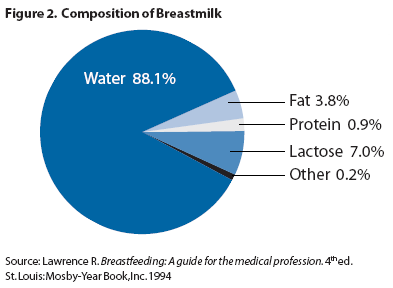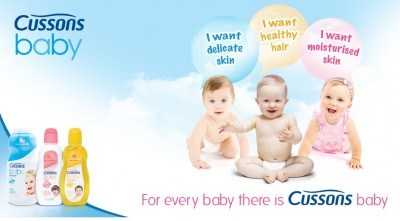When I was pregnant with both my kids, my primary concern was that I should be able to breastfeed them. The benefits of breastmilk are immense that I didn't want them to miss out on the perfect nourishment from day one. A lot of mothers now prefer to breastfeed their baby exclusively for the first 6 months and then supplement it with food even up to the age of 2 years in some cases.
You may also like: From Breastmilk to Complementary Food: Baby Steps in Healthy Eating
What is Breast Milk?
Breast milk is the primary source of nutrition that a mother produces once she delivers a baby. Doctors recommend that skin to skin contact right after birth and the baby's suckling instinct is the strongest immediately after birth. This signals the brain to begin breastmilk flow. Getting your little one to suckle while holding him/her close to your body is just what you and your baby need at that time.
Exclusive Breastfeeding
When you first start breastfeeding, your first milk is colostrum. This thick and sticky yellowish liquid is very rich in protein, minerals and antibodies. The small quantity of colostrum that your little one drinks is just what he/she need in the first few days to keep them satisfied. Breast milk changes to mature milk about 20 days after birth.
You may also like: Weaning Baby With Milk Allergies
Composition of Breastmilk
Breast milk is the optimal nutrient mix for infants. It’s full of antibodies, enzymes, and anti-inflammatory factors along with fatty acids which are extremely important for your baby's growth. A baby who is being breastfed is at a reduced of developing allergies. After birth, the colostrum that the baby takes in offers vital early protection by coating your baby’s digestive system.

Human milk is made up of 2 forms of protein that protect your baby – whey and casein. The composition of breast milk is said to be 60% whey and 40% casein. Due to this composition, the milk is very easily digested by a new-born’s sensitive tummy. However, breastmilk is constantly changing, even throughout a single feed. An infant can have varying degrees of appetite and thirst, and so breastmilk can also vary to meet the infant’s individual nutrition and fluid requirements.
The fat content of breastmilk is extremely important for the brain development of your baby. It is also the primary source of calories for your baby and one he/she needs for adequate weight gain.
The vitamin and minerals in breastmilk are directly linked to what the mother eats and drinks. So it is essential that you eat well and your nutrition, including vitamins. Fat-soluble vitamins, including vitamins A, D, E, and K are all vital to the infant’s health.
The carbohydrates found in human milk is lactose. This accounts for about 40% of the calories provided by breast milk. Lactose helps improves the absorption of calcium, phosphorus, and magnesium and promotes the growth of healthy bacteria in the stomach. Breastmilk also contains enough water for the baby's needs (87% of water and minerals).
You may also like: Myths vs Facts About What You Should Be Feeding Your Baby
5 Reasons Why Breastmilk Should Be Baby's 1st Food
Nutrients: Every mother makes milk as per her body type and her child's needs. And it contains all the important nutrients like vitamins, protein and fats in the correct proportion. Also as the baby grows and his/her digestive system undergoes changes, so does the milk content of the mother.
Protection: Being breastfed reduces the risk of cancer, obesity, type 2 diabetes and cardiovascular condition in adults. So by giving your baby breastmilk for the first 6 months you will be protecting your child from a host of things in the future.
Good For The Brain: There is evidence that babies who have been breastfed have a higher IQ than those who grew up on formula. There is evidence that babies who have been breastfed scored higher on intelligence tests as compared to babies who have not been breastfed. Scientists suggest that this is due to the presence of DHA in breastmilk.
Good For Digestion: Breastmilk has partially hydrolyzed proteins; it is easily digested and absorbed and is gentle on the tummy. Babies are dependent on their mother to populate their digestive system with beneficial bacteria. The presence of lactic acid bacteria in breast milk helps the baby’s digestive tract stay healthy with good bacteria which is extremely important for the development of their immune system.
No Allergies: As per the WHO, exclusive breastfeeding can reduce the risk of obesity. Children with a weight problem who have not been breastfed are at higher risk of developing health issues like type 2 diabetes, high blood pressure, asthma, sleep disorders and liver disease.
Besides the above reasons why breastmilk should be your baby's first food, the practical benefits are that you don't have to wash nipples, sterilize bottles and will get more time to bond with your little one. Breastfeeding is good for the moms also – it helps the uterus come back to its original shape and size faster and reduces the risk of ovarian and breast cancer. For those women who are unable to lactate, get in touch with a lactation consultant in your city.
You may also like: 11 Things Every Parent Should Know To Raise An Intelligent Child
This post is written in association with Nestle Start Healthy Stay Healthy.
Image Source: https://www.telegraph.co.uk
Don’t forget to follow us on Facebook, Twitter, Pinterest, Soundcloud & Instagram or subscribe to our YoutubeChannel for more information




















